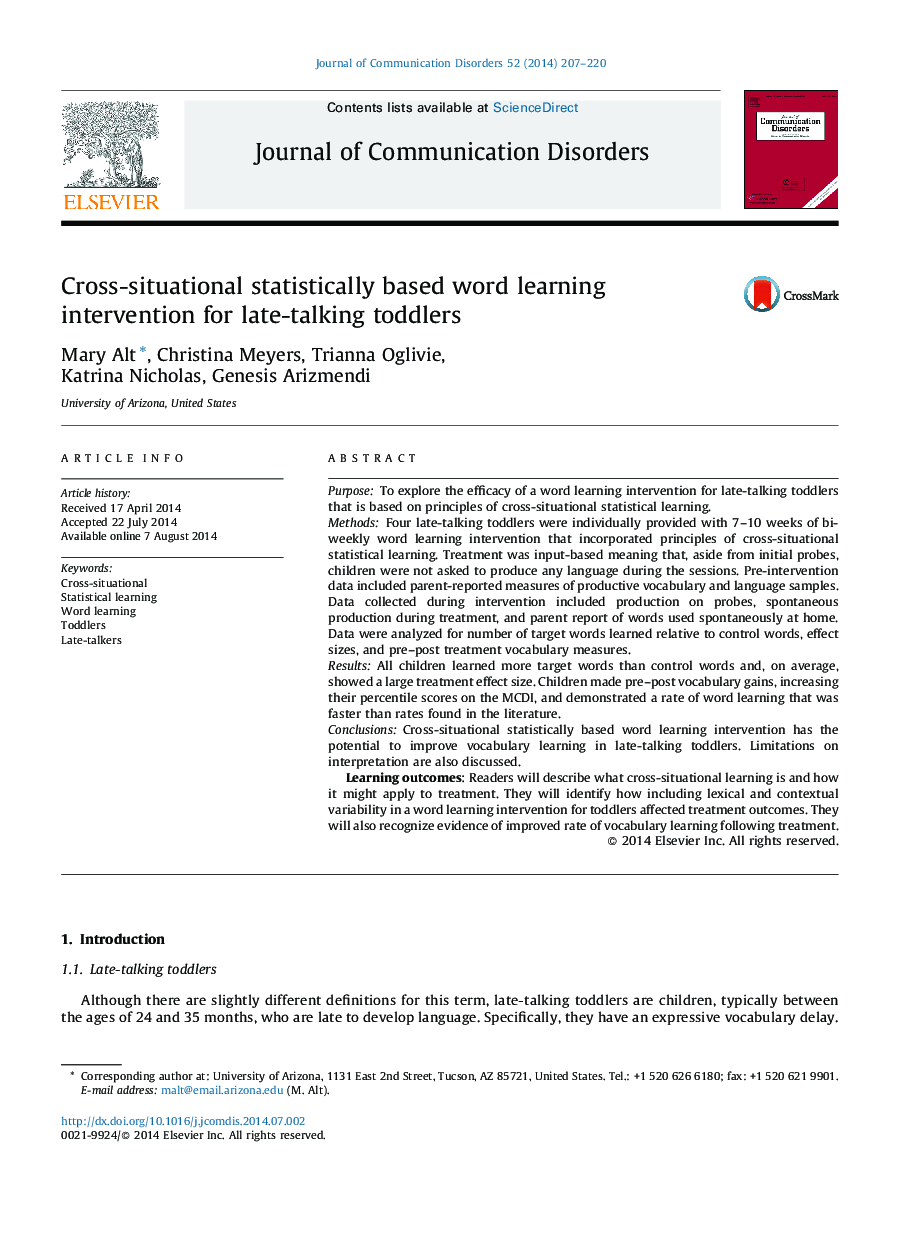| Article ID | Journal | Published Year | Pages | File Type |
|---|---|---|---|---|
| 910808 | Journal of Communication Disorders | 2014 | 14 Pages |
PurposeTo explore the efficacy of a word learning intervention for late-talking toddlers that is based on principles of cross-situational statistical learning.MethodsFour late-talking toddlers were individually provided with 7–10 weeks of bi-weekly word learning intervention that incorporated principles of cross-situational statistical learning. Treatment was input-based meaning that, aside from initial probes, children were not asked to produce any language during the sessions. Pre-intervention data included parent-reported measures of productive vocabulary and language samples. Data collected during intervention included production on probes, spontaneous production during treatment, and parent report of words used spontaneously at home. Data were analyzed for number of target words learned relative to control words, effect sizes, and pre–post treatment vocabulary measures.ResultsAll children learned more target words than control words and, on average, showed a large treatment effect size. Children made pre–post vocabulary gains, increasing their percentile scores on the MCDI, and demonstrated a rate of word learning that was faster than rates found in the literature.ConclusionsCross-situational statistically based word learning intervention has the potential to improve vocabulary learning in late-talking toddlers. Limitations on interpretation are also discussed.Learning outcomes: Readers will describe what cross-situational learning is and how it might apply to treatment. They will identify how including lexical and contextual variability in a word learning intervention for toddlers affected treatment outcomes. They will also recognize evidence of improved rate of vocabulary learning following treatment.
